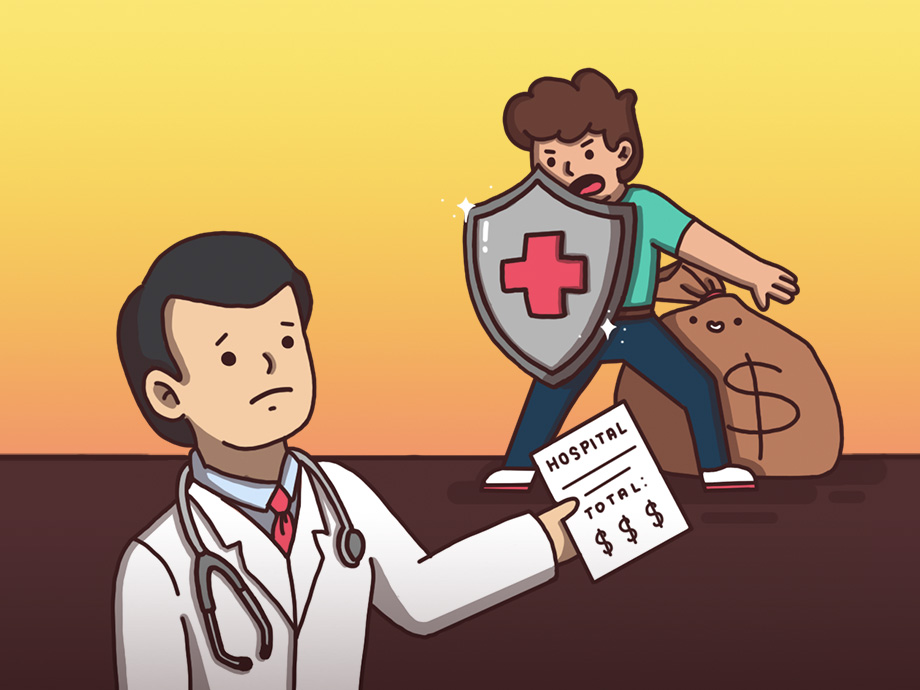Financial Planning | Personal Finance | Article
6 Milestones in Your Life Where You’ll Need to Review Your Life Insurance Policy
by The Simple Sum Team | 12 Jan 2023

By now, most of us know the importance of having life insurance – to ensure our loved ones are financially taken care of in case something untoward happens to us. But when was the last time you looked at your life insurance policy?
Most of us sign up for a life insurance policy thinking it’s a one and done thing. But the reality is that your life never stays the same; a policy that seemed good enough when you are 25 years old may not be sufficient when you are 35 because you may have a different job, more dependents, or a more expensive lifestyle.
So, it is important to understand your coverage and when to review your policy to avoid overspending or being insufficiently insured.
Here are six milestone in life when you will need to relook your life insurance.
After a big purchase
Almost everyone makes a big purchase at some point in their lives such as buying a house, a car or paying for our child to go to school. As most people can’t afford paying hundreds of thousands of dollars for these purchases upfront, it’s common to take sizeable loans to help fund them.
When we take on these loans, many of us operate on the mindset that we’ll work hard for the next 20 to 30 years of our lives to pay off our debts. But as we cannot predict what happens in life, it’s also vital that we prepare for the possibility that we’re unable to pay these debts because of death or permanent disability.
One way to ensure that your loved ones aren’t saddle with debt in the event of your death is by factoring in the amount of your loans into your insurance coverage.
When you review your policy, consider whether the payout would be sufficient to pay off the loans or cover the monthly instalments for a period of time.
In the same vein, once you’ve finished paying off your loans, you’ll have fewer monthly obligations to worry about so you can consider reducing your insurance coverage, which will bring down your premiums.
After a marriage or divorce

After marriage, a lot of your household expenses will be combined and split between the both of you, as you start living together. Major financial changes such as this should be reflected in your life insurance policy, so this is a good time to review it.
You can also nominate your spouse as your beneficiary to protect them financially, in case something were to happen to you.
Likewise, when a relationship goes south, you should review your policy, especially if you share a joint insurance policy. You might also want to remove your ex as a nominee in your policy.
When your career changes
Career changes such as a promotion, an increment or a retrenchment would affect your financial status and your lifestyle spending. Hence, you might want to increase or decrease your coverage to meet these changes.
You should also review your policy after starting a new job. This is because the nature of your job affects your monthly premiums. For instance, a window-cleaner would have higher premiums compared to an office worker because of the riskier nature of their job.
Related
When you get new dependents
Whenever you welcome a new addition to your family, chances are that your household expenditure would increase along with it, and so should your policy. You might also want to include your child as a beneficiary in your policy.
This also applies if you’ve just started supporting an aging parent or relative. Ideally, parents should have sufficient retirement funds of their own, but if they don’t have enough to fund their expenses and are also plagued by health issues, you may have to be the one to support them financially. . Calculate their medical needs and living costs into your coverage so they will be taken care of in case anything were to happen to you.
When your dependents become independent
When your children grow up and leave the family nest, there will be less mouths to feed. This reduces your household expenditure, meaning, you can also consider decreasing your policy’s payout.
Sadly, the same rule applies when a dependent such as an aging parent passes away.
Related
When you have changes in your health
If you are suddenly diagnosed with an illness, you might want to increase your coverage, to safeguard your family.
On the flip side, if your health improves, some insurance companies allow you to get a better rate on your premiums. For example, if you are a smoker and have quit smoking for at least 12 months, some insurers allow you to lower your premium, as you are no longer considered “high risk”.




















